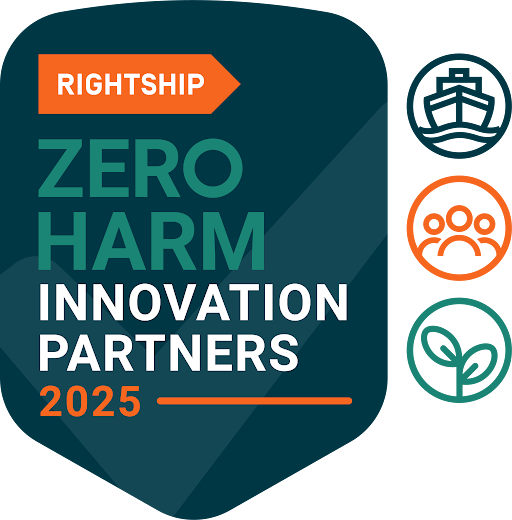Mastering Conflict Management: A Vital Skill for Maritime Professionals
Workplace conflicts are inevitable, especially in the high-pressure environment of maritime operations. Whether it’s a misunderstanding between crew members or a disagreement over operational decisions, conflicts can disrupt teamwork, lower morale, and negatively impact productivity. However, when managed effectively, conflicts can lead to growth, stronger relationships, and a more collaborative work environment.
The Importance of Conflict Management in Maritime Operations
Conflicts onboard ships are unique due to the close-knit environment, cultural diversity, and high-stress conditions. Effective conflict management is crucial for:
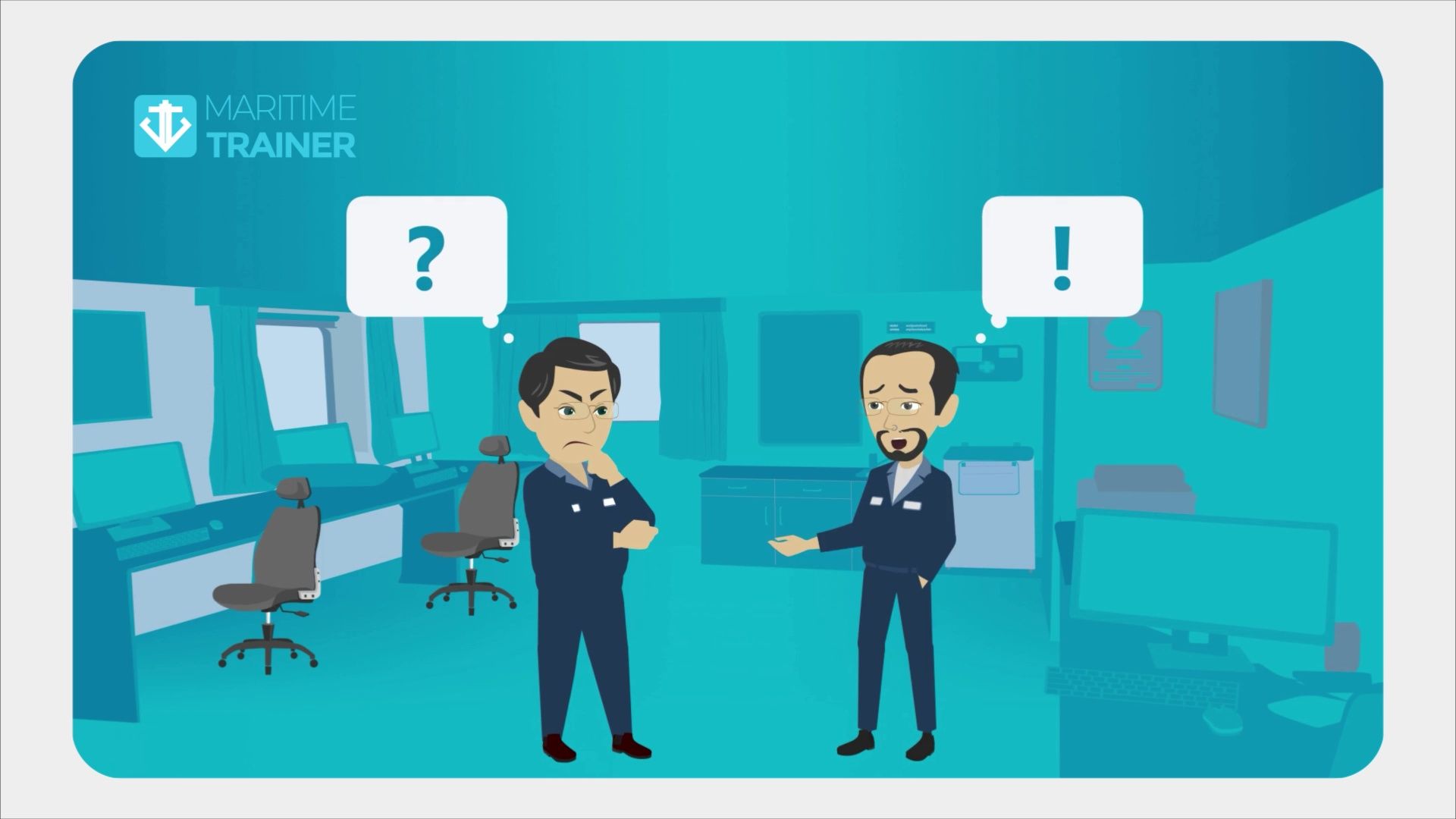
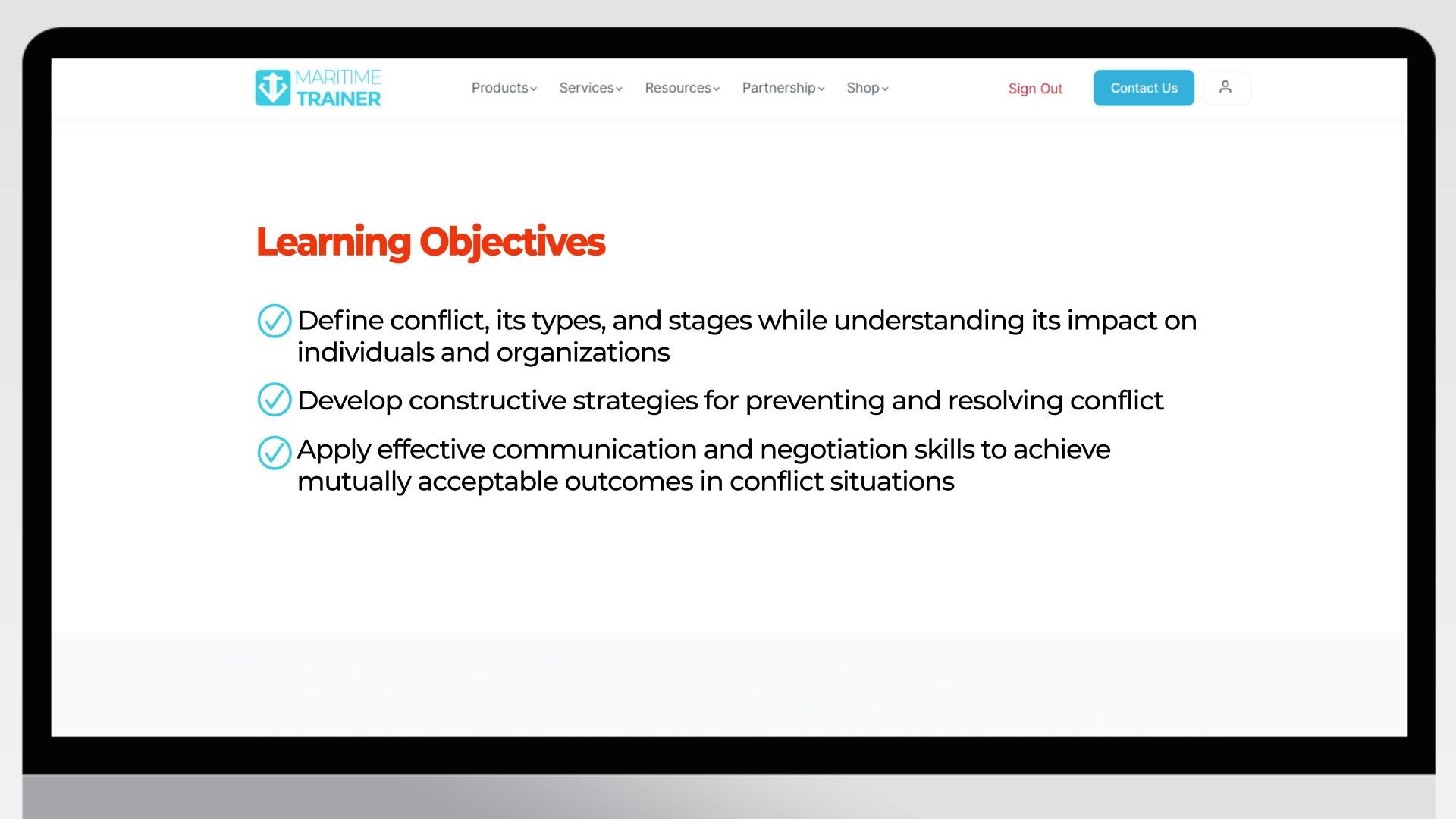
1. Ensuring Operational Efficiency
Common Causes of Workplace Conflicts Onboard
Understanding the root causes of conflicts is the first step in resolving them. Common triggers in the maritime industry include:
- Ensuring Operational Efficiency
Unresolved conflicts can lead to miscommunication and errors, jeopardizing the safety and efficiency of maritime operations. - Maintaining Crew Morale
Tension among crew members can lower morale, affect the overall atmosphere onboard, and potentially lead to high turnover rates. - Building Stronger Teams
Conflicts can strengthen relationships and foster mutual understanding among crew members when handled constructively. - Enhancing Leadership Skills
Leaders who manage conflicts effectively demonstrate emotional intelligence and inspire team confidence.
Common Causes of Workplace Conflicts Onboard
Understanding the root causes of conflicts is the first step in resolving them. Common triggers in the maritime industry include:
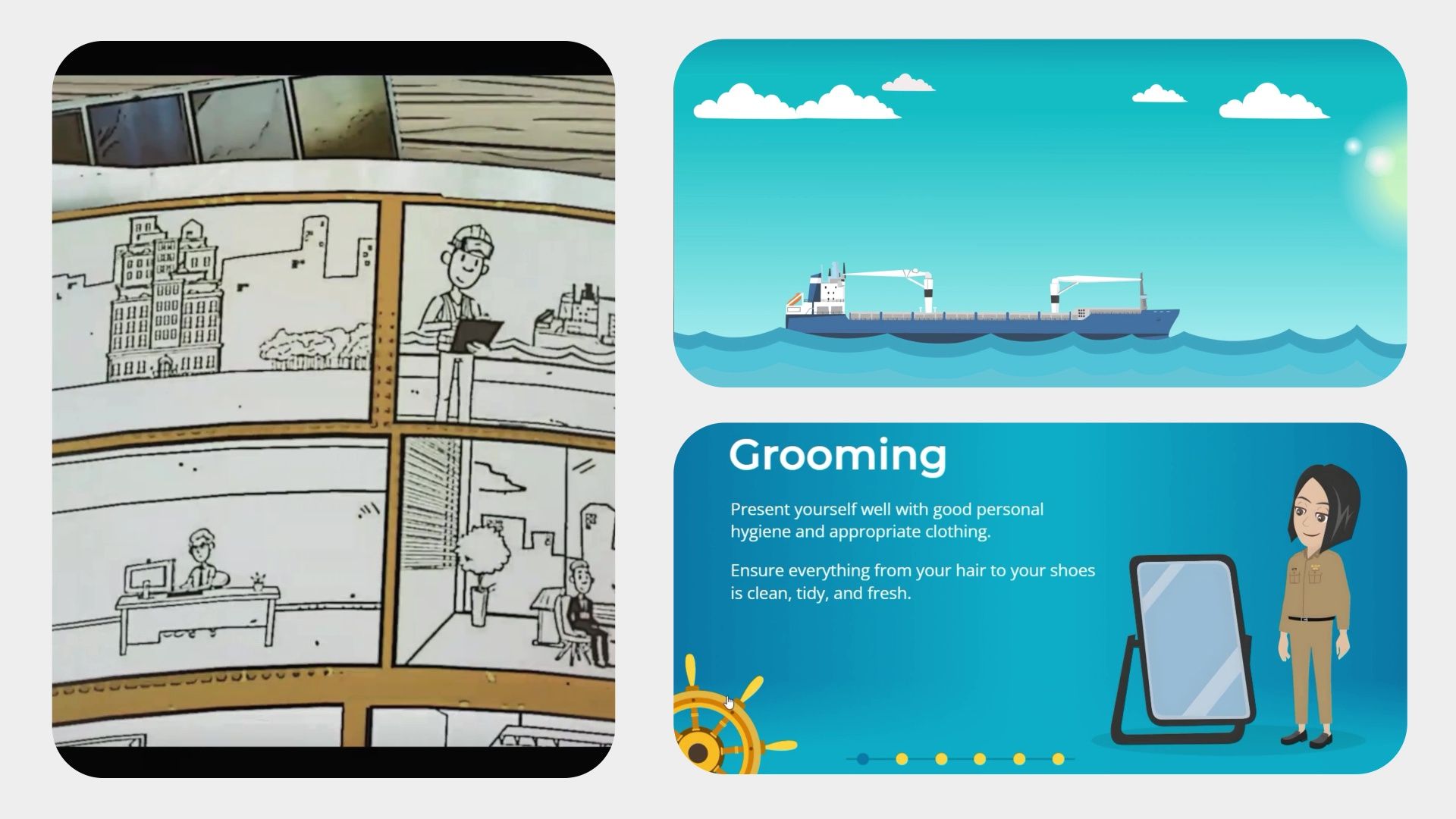
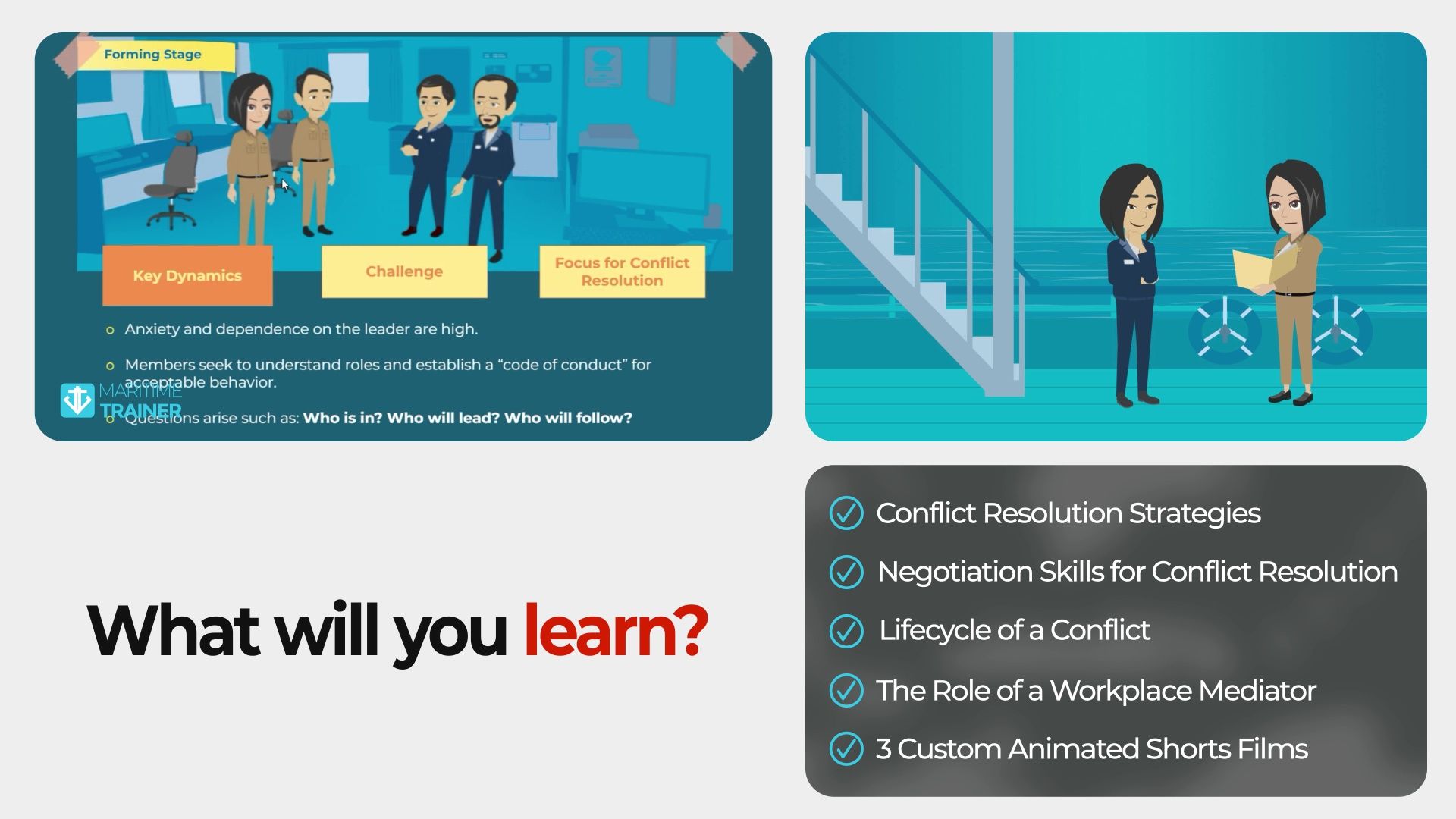
- Cultural and Language Barriers: With multinational crews, differences in communication styles and cultural norms can lead to misunderstandings.
- Stressful Work Conditions: Long hours, isolation, and high-stakes tasks can amplify tensions among crew members.
- Role Ambiguity: Unclear job responsibilities or overlapping duties can create frustration and conflict.
- Personality Clashes: Diverse personalities working in close quarters can lead to disagreements and tension.
- Operational Disagreements: Differing opinions on procedures or decisions can escalate into conflicts if not addressed promptly.
The Role of Effective Conflict Management
Conflict management is not about avoiding disputes but addressing them in a way that leads to positive outcomes. Key elements include:
- Active Listening: Understanding the perspectives of all parties involved is essential for finding common ground.
- Clear Communication: Articulating concerns and expectations in a respectful and non-confrontational manner helps prevent misunderstandings.
- Empathy and Emotional Intelligence: Recognizing the emotions behind the conflict enables leaders to address the root causes effectively.
- Problem-Solving Skills: Identifying solutions that satisfy all parties ensures long-term resolution and harmony.
- Mediation and Negotiation: Involving a neutral party to mediate or negotiate compromises can help resolve complex conflicts.
How Conflict Management Training Helps Maritime Professionals
What You’ll Learn:
- Root Causes of Conflicts: Understand why and how to address conflicts proactively.
- Constructive Techniques: Learn strategies to resolve disputes without escalating tensions.
- The Role of Communication: Master the art of active listening and clear expression to foster understanding.
- Building Teamwork: Strengthen relationships and create a collaborative onboard environment.
- Maintaining Morale: Learn how to support crew members during challenging situations.
Who Should Take This Course?
- Deck Officers and Captains: Responsible for maintaining harmony and efficiency onboard.
- Engineers and Technicians: Working closely in high-pressure environments.
- Support Crews: Managing interpersonal relationships during day-to-day operations.
- Shore-Based Personnel: Facilitating communication between crew members and management.
Conflict management skills are invaluable for fostering a healthy workplace culture, whether you're a leader or a team member.
Course Details
- Duration: 45 minutes
- Language: English
- Skill Level: Operational
- Assessment: Yes
- Certification: Valid for 5 years
Why Choose Maritime Trainer?
At Maritime Trainer, we pride ourselves on providing industry-leading training solutions that combine expert knowledge with practical applications. Here’s why seafarers trust us:
Comprehensive Content: Covering real-world scenarios and actionable techniques.
By choosing Maritime Trainer, you’re not just learning—you’re gaining the confidence to handle any challenge the sea throws your way.
Conclusion
Conflict is a natural part of any workplace, but it doesn’t have to disrupt operations or lower morale. With the right skills and strategies, maritime professionals can transform conflicts into opportunities for growth and collaboration.
The Conflict Management course provides seafarers with the knowledge and tools to address workplace disputes constructively, ensuring a harmonious and productive onboard environment.
Enroll today to enhance your conflict management skills and build a stronger, more collaborative team. For more information, visit our website or contact us at sales@maritimetrainer.com.

Approved & Certified by Bureau Veritas

We are proud to be member of
